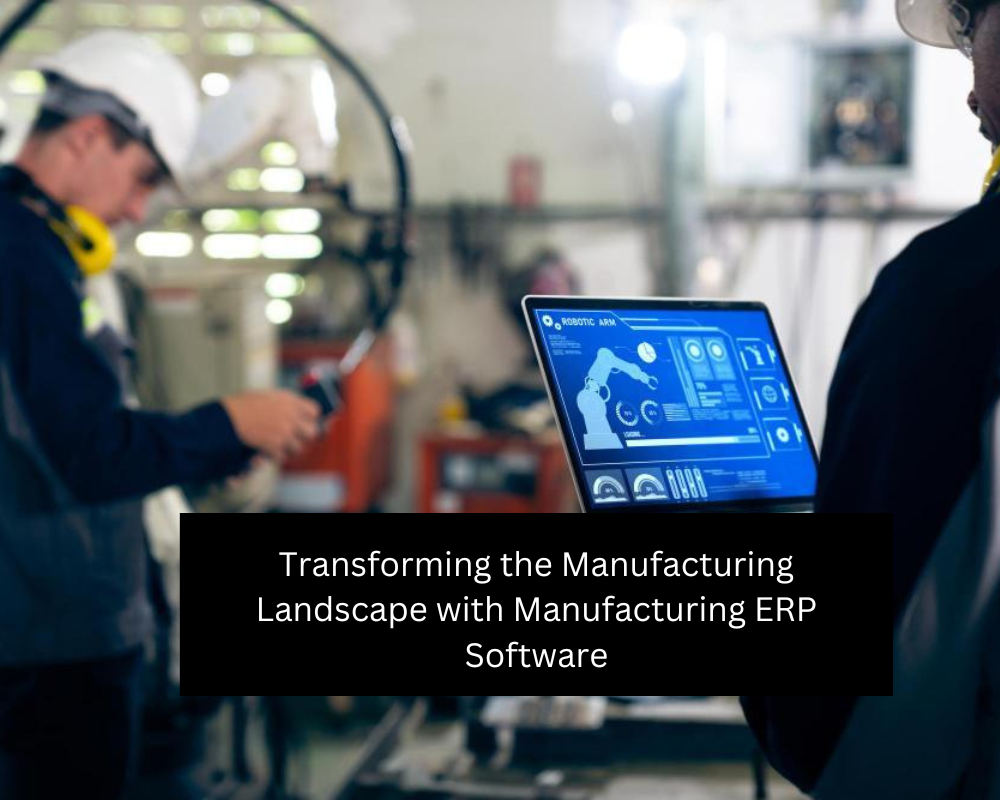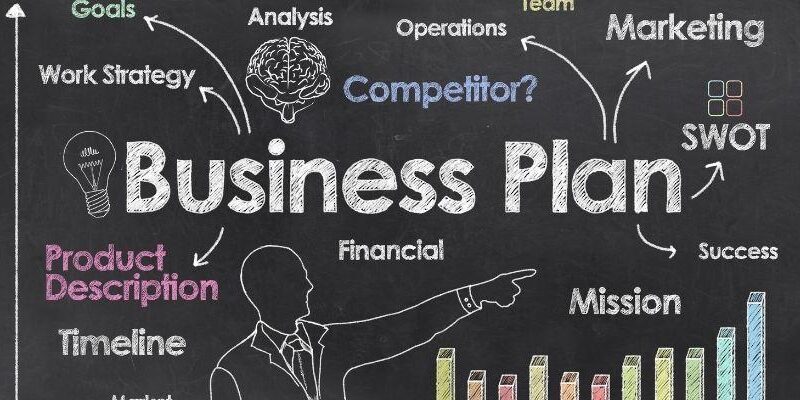Transforming the Manufacturing Landscape with Manufacturing ERP Software

Manufacturers worldwide understand the value of implementing technology in their manufacturing business to enhance efficiency and profitability. For example, the manufacturers have begun to implement Industry 5.0 to help with the work on the plant floor. Still relying on manual methods for manufacturing processes is outdated and is hazardous for the business growth. So, the manufacturing landscape requires a digital transformation to stay successful and gain a competitive edge. An enhanced business management system like enterprise resource planning software is essential for the manufacturing business to achieve growth and profitability.
What is manufacturing ERP?
Manufacturing ERP is an advanced technology used by manufacturers to plan, manage and deliver functionalities that support manufacturing business operations on a daily basis. Modern ERP systems are tailored specifically for the manufacturing industry and have the capability to flexibly support and easily integrate into business processes.
ERP for the manufacturing industry has the ability to increase operational efficiency by managing and controlling the way the resources are allocated and utilized. Without compromising on quality and performance, ERP helps in improving or reducing the number of resources utilized every day.
Manufacturing ERP has the potential to manage all aspects of the business from shop floor to supply chain operations with a special focus on inventory planning. In addition, it has other modules like financials and customer relation management which will help in improving operational efficiency and profitability.
Why do manufacturers require ERP software?
Manufacturers strive hard to achieve efficiency and to stay competitive in the manufacturing landscape. Plus, they want to reduce wastage and lower unnecessary costs. There are multiple methods and technology which can help the manufacturers to achieve their business goals. One such technology is ERP, a modern technology to manage and control business operations.
Manufacturing ERP helps the manufacturing business by allocating the right amount of resources. It prevents wastage and ultimately lowers costs. And the resource allocation is done without compromising on the quality of the product. So, all these functions are carefully done by ERP to help the business to grow and increase revenue.
Read: Working with Jewelry-Making Suppliers: A Comprehensive Guide
Steps in the manufacturing process that can be improved with an ERP software
ERP for manufacturing provides internal control to manage the daily activities of the business. Listed below are the various stages of the manufacturing process that can be efficiently managed with the help of ERP.
- Order and sales management
- Project management
- Customer relationship management
- Operations management
- Inventory Management
- Finance and accounting management
Benefits of Manufacturing ERP
Enumerated below are some of the benefits of manufacturing ERP.
1. Lowers operational costs
Automating all the business processes increases productivity and this results in achieving efficiency. In addition, manufacturing ERP reduces wastage, minimizes errors which helps in minimizing costs and increases profit.
2. More organized and streamlined workflow
Manufacturing ERP has a centralized database. So all the departments are connected which allow the data to flow freely from one department to another. Plus, automation of all processes removes all the bottlenecks.
3. Boosts productivity
ERP helps in achieving efficiency in the financial operations and provides assistance to manage the sales operations and other significant functions. Further, it has a real time visibility feature that helps the business to take right decisions for the business. ERP boosts communication among employees, which will enhance productivity.
4. Gain competitive edge
ERP deployment for the manufacturing business helps the manufacturers to understand customers needs with the help of reports and forecasts. As a result, it will open new opportunities to adopt better strategies in improving the manufacturing processes. And with access to historical data and real time information, it helps to solve all the critical issues or assists to avoid the problems.
5. Quickly respond to changing market conditions
With the help of a real time visibility feature in the ERP, businesses can estimate, plan, adjust and help in responding to the changing market conditions faster. Decision-makers can easily access the reports regularly to gain insights on changing customer purchasing trends. More detailed insights reduces the forecasting errors and focuses more on new opportunities.
6. Robust and secure data storage system
We all know that process automation needs a lot of secure space for data storage. Relying on ERP is the best decision for the manufacturers. ERP automates the entire business processes and has the capability to store vast amounts of data. Plus, it ensures multiple levels of security. Only authorized people will have access to the data.
Difference between standard ERP and Manufacturing ERP?
Standard ERP provides common functionalities which cater to the general requirement of the business. It is a software developed to fit all types of business. The major limitation of this type is that it lacks functionalities crucial for the manufacturing operations. Plus, if you want these industry-specific functionalities, then you have to spend money for additional software.
Manufacturing ERP is industry-specific and provides more deeper and advanced functionalities. A manufacturing ERP seamlessly integrates all the core business operations. In addition, it gives a clear cut view from the front end to the back end. Further, it provides complete visibility and control over the entire manufacturing process and helps the business to be more profitable.
Manufacturing ERP is a comprehensive suite with tools and functionalities suitable for the industry-specific requirements. With all the tools, add-ons are also added to control all the manufacturing processes to boost efficiency and growth. Some of the tools include financial management, compliance updates, inventory management, production management, supply chain management, job planning and scheduling, costing and tracking etc.
Conclusion
Manufacturing ERP provides advanced functionalities specific to the manufacturing industry. It is a robust system which is agile, flexible and proactive. It has a centralized database with real time visibility features, accurate reporting and demand forecasting abilities, and fosters collaboration across departments. It monitors and controls all the operations of the business efficiently. ERP solution guarantees high growth standards and customer satisfaction. And it helps the business to stay relevant and recent. The only thing is that the manufacturer has to choose the right software suitable for their business based on the requirements.
Author’s Bio:
Sneha Rakte is a specialist in communication who excels at recognizing client requirements. She produces persuasive sales copy and high-converting content. She currently works with Sage Software Solutions, an industry leader in supplying small and medium-sized enterprises in India with high-quality ERP system and CRM solutions.



